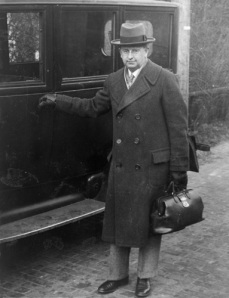By Blogger Linda Ross
It is heartbreaking to be unemployed or to know the unemployed.
A recent 60 Minutes segment highlighted the success of an experimental program – Platform to Employment – based here in Stamford, Connecticut. Scott Pelley began by saying, “Never in the last 60 years has the length of joblessness been this long. Four million people, a full third of the unemployed, have been out of work more than a year. These folks have been out of work two years, three, even four. They’re college educated professionals in their forties or fifties…they’ve fallen out of the middle class. Turned in cars, gone on food stamps, taken kids out of college and faced foreclosure.”
The segment focus then turned from describing the current plight of a new underclass of long term unemployed to the state unemployment office in southwesternConnecticut. Its innovative program, Platform to Employment, is a partnership with area businesses that provides training coupled with an opportunity for an eight week internship with jobs needing to be filled. It’s hoped that this experiment might be a model around the country for the other four million and counting whose lives have been broken by the Great Recession.
There have been several times in my life when I traveled down some of the same difficult terrain of my fellow Connecticut residents featured in the 60 Minutes story. After graduating from college, years later when relocating, and then after a divorce were all times when I was challenged with lengthy unemployment or underemployment. As is my custom, prayer and a deeper study of the Scriptures helped me to find relief from the nagging self-doubt and sense of hopelessness. The result was a humility that allowed me to hear “the still, small voice” mentioned in the Bible – what today is called intuition or angel thoughts.
The intuition I had during my first bout with unemployment after college was one that has guided me ever since. It was simply, “God is my employer.” I believe that God gives me life and this life is complete and sustaining. I have learned that these intuitions or angel thoughts must be followed by appropriate action on my part. So I looked at every circumstance that crossed my path as an opportunity for employment. I made sure I did justice to it with an excellent work ethic – by being thoughtful, thorough, and doing more than was required. Gratitude played an important role too, especially when some of the jobs required far less than my college degree and previous experience.
Over the years I have found work often in areas that I never would have imagined or thought possible. I’ve also seen a pattern of ongoing professional (and personal) development and an actual wealth of opportunity. Perhaps, one might say, I found a tried and true “platform to employment.”
Linda Ross is a Christian Science practitioner living in Connecticut.


 Having seen the film, the next week I was prepared with more specific questions. This delighted the class to no end! Given that the venue for the discussion was our Sunday School class, my prayer was to find some related spiritual and moral path for them to consider.
Having seen the film, the next week I was prepared with more specific questions. This delighted the class to no end! Given that the venue for the discussion was our Sunday School class, my prayer was to find some related spiritual and moral path for them to consider.  A century ago, when conformity was even more common, a young man did take a “road less traveled.” Doing so saved his life the night the Titanic sank.
A century ago, when conformity was even more common, a young man did take a “road less traveled.” Doing so saved his life the night the Titanic sank.
 As an adult, I want to understand better what impels the love that results in an uplifting joy and even at times better health. Pondering the life Jesus lived and taught, including its healing effect, the author of the Biblical book of
As an adult, I want to understand better what impels the love that results in an uplifting joy and even at times better health. Pondering the life Jesus lived and taught, including its healing effect, the author of the Biblical book of 
